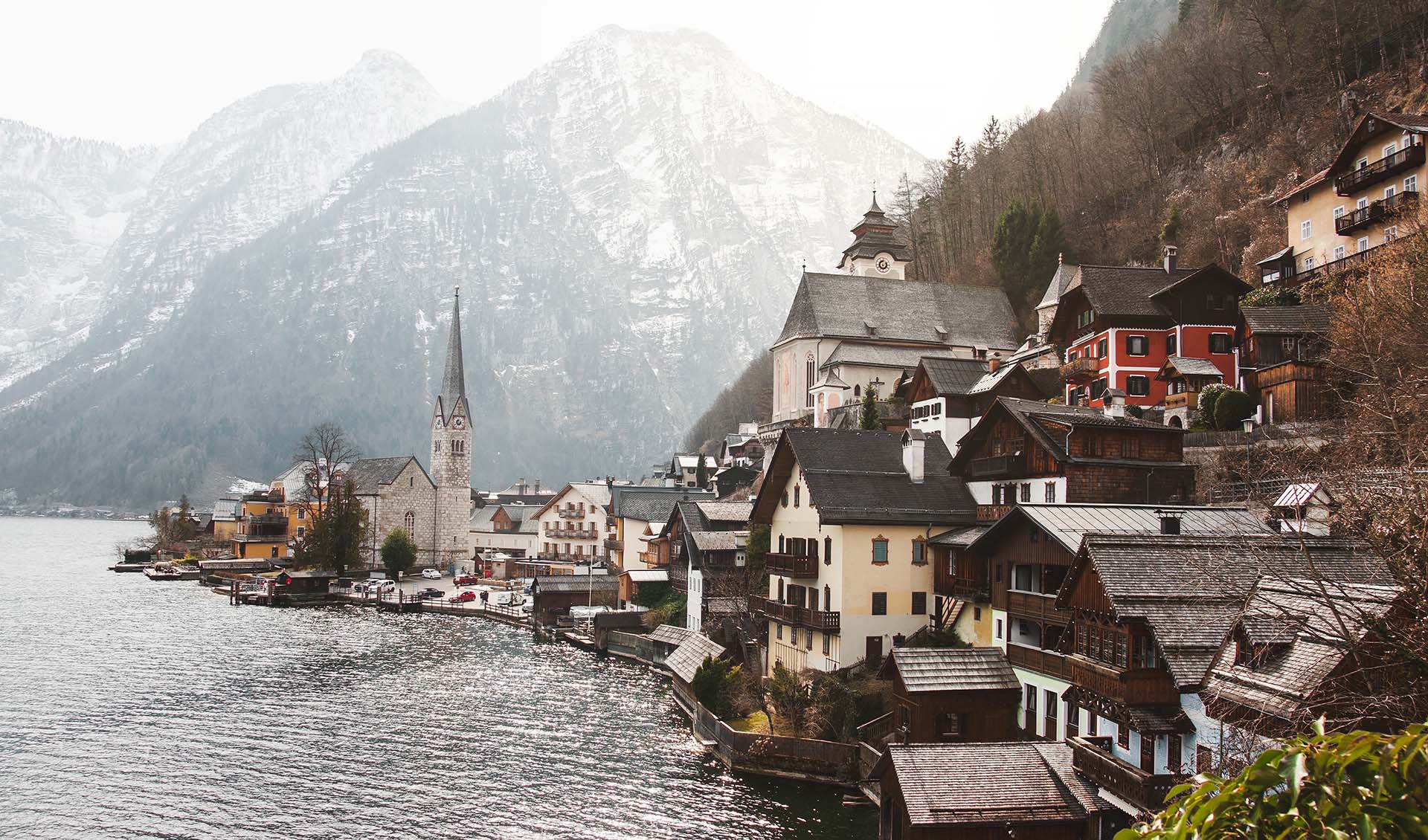Austria is one of those countries that are ideal for family holidays. Its geography and climate make for a great holiday at any time of the year, and the locals take great care to ensure travellers have the best possible experience.
The most common misconception is that a holiday in Austria is all about skiing. In the warmer months, the country will surprise and delight even the most demanding traveller: you can hike the mountain trails, swim in the lakes, ride horses and visit the historic sites.
Beach lovers will certainly appreciate the beautiful lakes in the south of Carinthia. The climate of the lake region is reminiscent of the Mediterranean.
In this article, we'll help you find out what to bring with you to Austria so that you don't overstuff your suitcase and still have all the essentials.
Contents
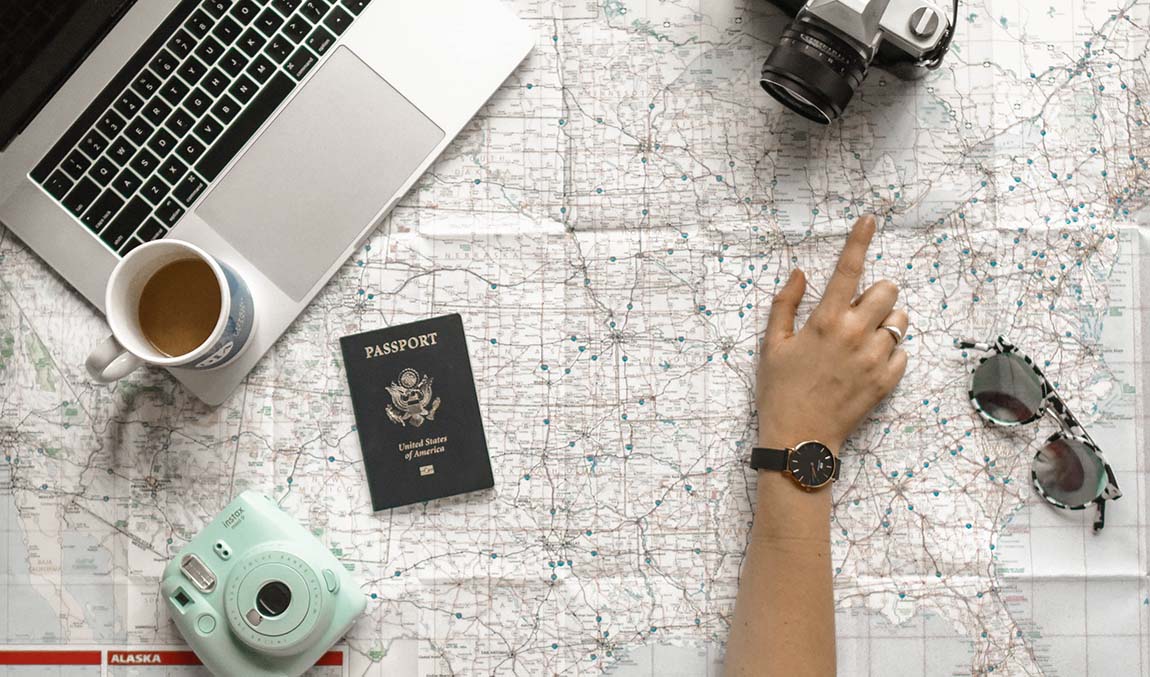
What to pack for your child when travelling to Austria
Planning a trip with children? Then you'll probably have a lot of questions about what to bring with you to Austria and what documents, clothes and medicines your children will need. We've tried to put together a rough list of what you'll need to bring with you.
Papers
Gathering the necessary documents is one of the most important parts of planning any trip. Travelling with children has its own particularities. Here is a list of documents for the whole family:
- Passports for all family members, ID cards, EU social security / health care ID card (for EU citizens, optional). Six months passport validity recommended, at least 3 months validity beyond your planned date of departure from the Schengen area is required.
- Children's birth certificates or other proof of parentage.
- If your child is traveling alone, with only one parent, or with a non-legal guardian, they will require a Child Travel Consent signed by both parents or legal guardians.
- Visa. Please note that some countries of the European Union have a visa-free regime. Citizens of these countries do not need a visa, but a biometric passport is required.
- Round-trip air tickets.
- Travel insurance policy.
- Voucher or copy of the document confirming the hotel (apartment) reservation.
- Travel voucher.
- Driver's licence (if you plan to rent a car).
- Money and bank cards.
- Copies of all documents.
Clothing
What clothes you and your children might need depends on the purpose of the trip, its duration and time of year, as well as the age of the young travellers who are travelling with you. Here are some practical tips on what to pack for your children's wardrobe.
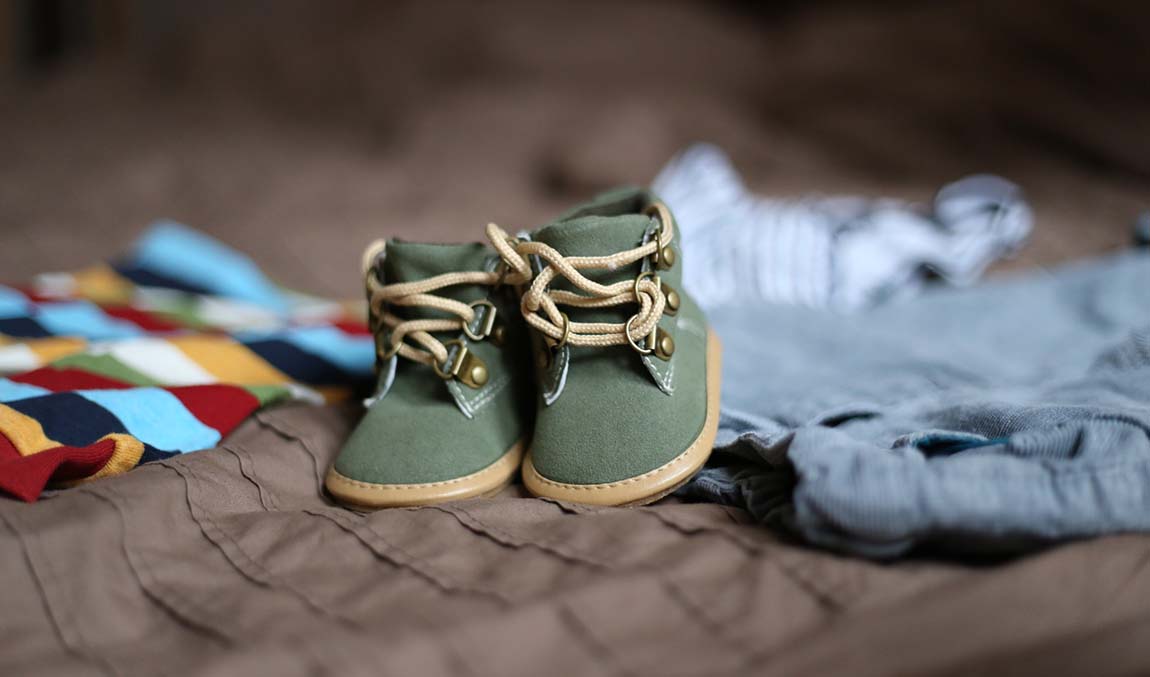
If you are travelling with a baby, it is advisable to pack a change of clothes for daily use. If your holiday is longer than 7-10 days, it is advisable to take a week's worth of clothes and allow for washing, otherwise the luggage will be too bulky. Older campers can take one set every 2-3 days.
What does a young traveller who wants to learn to ski or snowboard need in winter in an Austrian resort? Here is a rough list:
- Thermal underwear and socks. Two outfits are ideal.
- Waterproof and comfortable winter boots (two pairs).
- Fleece jacket.
- Waterproof trousers, ski jacket (or suit) and gloves for skiing.
- Hat and scarf.
- Warm gloves.
Ski equipment, including boots, should be hired at the resort.
For normal city walks, standard winter clothing is sufficient: tights, leggings, warm trousers, sweaters, winter jacket. You don't need to pack all this in your luggage, as some of it will probably be worn on the way.
During the warmer seasons, light clothing is important. If you are planning a summer holiday by the lakes, your child's clothing list for the week will be as follows
- Underwear. It is advisable to take several sets with you, at least one for each day.
- Socks.
- Swimming costumes or trunks (2-3 pieces).
- Beach T-shirts, shorts, T-shirts. Preferably for every day.
- Light trousers or tight jeans, tracksuit, windbreaker.
- Girls' sundress, dress, trousers, jeans, windbreaker.
- Headwear.
- Pyjamas.
- Comfortable footwear: flip-flops for the beach, trainers, shoes for walking around town.
In spring and autumn, when it is no longer cold but still far from the summer heat, do not forget a jacket, a hat, a coat.
Accessories
Austria lies in the heart of Europe. In winter it attracts skiers from all over the world, so prices in its resorts have always been quite high.
Shops and supermarkets are everywhere, but one thing that many tourists notice is their opening hours. Most shops in Austria are open from 8am to 6.30pm, and on weekends until 1pm. The lunch break is from 12pm to 1pm. After working hours, you can only buy things in certain shops, which you have to look for.
Large supermarkets close at 9 p.m., rarely at 11 p.m. Some petrol stations have shops open 24 hours a day. A lifesaver for travellers unaccustomed to such routines are the supermarkets at airports and railway stations in major cities. They are open from 6am to 9pm, with no public holidays or lunch breaks.
If you are travelling with a baby, you need to take this into account. So that you don't have to run around looking for the nearest shops on arrival, we've prepared a list of things you can take with you to Austria:
- Nappies. We recommend buying a small pack for the first 2-3 days at the rate of 5 pieces per day for babies and 3 pieces for older children. Do not make a big stockpile, because nappies take up a lot of space in your luggage.
- Nappies for bathing, in case there is a swimming pool in the hotel or you are going to the lakes.
- Wet wipes.
- Disposable cot sheets.
- Shampoo, baby cream, toothpaste, toothbrush, soap. To save space, it is advisable to choose a brand of soap, shampoo and cream that suits all family members.
- Sunscreen.
- Nail kit, comb.
- Baby sling, baby carrier.
- Baby items: bottle, plate, spoon, mug.
- Pacifier (if required).
Remember to pack nappies, a pack of wipes, a bottle and a pacifier in your hand luggage.
Gadgets and essentials
If you are going on holiday, think about what electronic and household items you will need. For many people, the most important travel gadget is the mobile phone.
Modern models have a number of features that allow the phone to replace some devices. For example, you don't need to take an e-book, a sat nav or a camera.
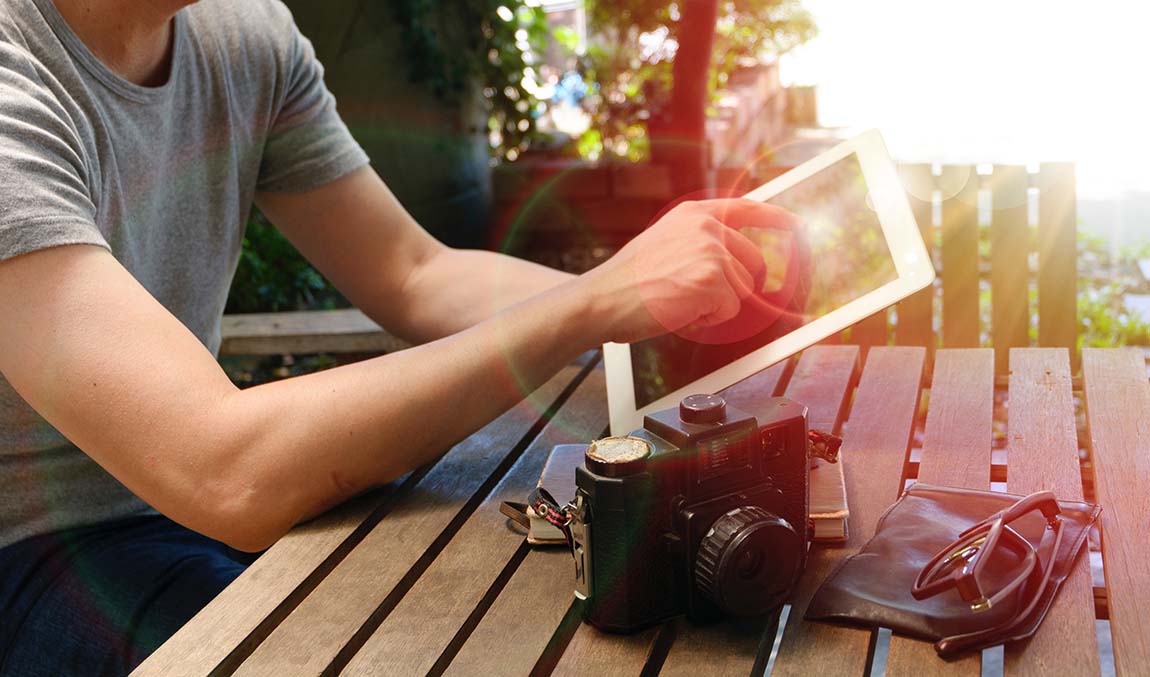
In addition, a tablet or laptop with their favourite games, shows, films or cartoons is a good way to keep them occupied while travelling. If you rent an apartment with a kitchen and plan to cook food for the child yourself, we recommend you pack a blender in your luggage.
Toys
You should bring some of your favourite toys. But remember: not too many, and preferably not too bulky.
Separately, think about how you will organise your child's free time in the waiting room at the airport or on the train. A favourite book, magazines, a colouring book or album, pens, markers and stickers can help. It is better to buy a few developmental books or magazines before you leave.
Include one or two toys, a book and a tablet in your hand luggage.
What toys and accessories to take on holiday if you are planning a holiday near a body of water:
- Inflatable arm bands.
- Children's inflatable vest.
- Bucket, spatula, some moulds.
- Beach towel, blanket.
What medicines to take to Austria
Austrian medical care is of a very high standard and all common medicines can be bought in any pharmacy. However, there is one small problem: most medicines require a prescription.
Pharmacies are usually open Monday to Friday from 8am to 6pm and on Saturdays from 8am to 12 noon. Most pharmacies are open without a lunch break. At night, medicines can be obtained from the on-duty pharmacies, whose addresses are displayed on the doors of all pharmacies.
To avoid the hassle of finding a local doctor to write your prescription, and the translation hassle at the pharmacy, it's best to pack the necessary medication with you, and don't forget to take out medical insurance to avoid language barriers and ensure you don't go without help.
What medication should I take with me to Austria? Here is a short list of things you should bring in your first aid kit:
- Antipyretics.
- Medication to normalise your blood pressure. The country is in a mountainous area, so there may be some problems during the acclimatisation period.
- Antispasmodics and painkillers.
- Pills, syrup or spray for a sore throat.
- Sunburn relief products (if you are going to the beach).
- Nasal drops.
- Antihistamines
- An antidiarrhoeal medicine.
- An antiemetic.
- External antiseptic for minor wounds.
- Ear drops.
- Sorbents and intestinal antiseptics.
- Antibiotics. After consulting your doctor, it is advisable to choose a universal antibiotic that will work for everyone in the family.
- Medicines for chronic diseases with a prescription in English.
- Antibacterial plaster, normal plaster, bandage, elastic bandage.
- Thermometer
This list can be supplemented if special medical equipment or medicines are needed for the child. Also remember that children under the age of three are prescribed medicines in the form of syrups, not pills.
Baby food
When choosing a hotel, find out if the restaurant offers children's meals and what exactly is meant by the term. In Austria, children's meals are often described as chips, fish nuggets or hamburgers.
When travelling with children, it is best to look for hotels that offer a diet menu, as this is more suitable for the youngest tourists.
Supermarkets and chemists stock a good range of premixes, purées and instant porridges from all the world's leading brands. The only difficulty is finding single-component purees.
When buying Baby Food Puree in Glass Jars be sure to pay attention to the ingredients: most of them contain carrots and sometimes even chocolate.
If you've booked an apartment with a kitchen, you can cook for the kids yourself by buying groceries from nearby shops and supermarkets.
And if a young traveller eats at a communal table, there's always something to suit their tastes in local cafes and restaurants. Kidpassage has a separate article on children's meals and food prices in local supermarkets.

What do you need for baby food when you go on holiday to Austria? It's a good idea to make a small supply of baby food and baby food puree in glass jars. However, if your baby needs special food or formula, it is advisable to stock up on it for the duration of the trip.
Bring any prescriptions for medication or special dietary requirements in English to show the pharmacist if necessary.
What currency is best to take to Austria
Tourists often ask what kind of money they should bring to Austria. The official currency is the Euro. You can pay for services or goods with cash or bank cards.
MasterCard, American Express, Visa and Diners Club are accepted. It is important to find out in advance which payment method is accepted at a particular establishment.
There is no fixed amount per day, but according to local legislation, foreign nationals who have not booked a hotel or other accommodation and who do not have sufficient funds to stay in the country and return may be refused entry at the border. Cash or bank cards can be presented as proof of ability to pay.
All banks and post offices will exchange most foreign convertible currencies into euros, but it is best to carry some euro cash. Bureaux de change can be found in airports, train stations, hotels and travel agencies, but charges can be high.
Banks are open Monday to Friday from 8.00 to 15.00. Some banks are open on Thursdays from 8.00 to 17.30. The lunch break is from 12.00 to 13.30.
Austrian customs regulations require a declaration if you are bringing in more than €10,000.
How much money you take with you depends on your wishes and plans. These are guide prices for equipment hire and some other costs in the local resorts:
- ski passes for adults (6 days) from 250 euros;
- ski passes for children (6 days) from 120 euros;
- Ski hire for adults (6 days) from 100 to 150 euros;
- ski hire for children (6 days) from 70 euros (often, a children's set is offered as a bonus to an adult's set);
- lunch or dinner in a cafe from 20-25 euros per person;
- souvenirs from 3-4 euros;
- sightseeing tours from 25 euros.
What you must not bring into Austria
As in many other Schengen countries, there is a specific list of items that cannot be brought into the country from non-EU countries.. The main prohibitions include
- Meat, sausages, lard, dairy products, tinned food, eggs.
- Chocolate, chocolates.
- Firearms (except hunting weapons, which require a special permit from the Austrian Embassy), ammunition, explosives, fireworks.
- Medication containing psychotropic substances may not be brought into the country.
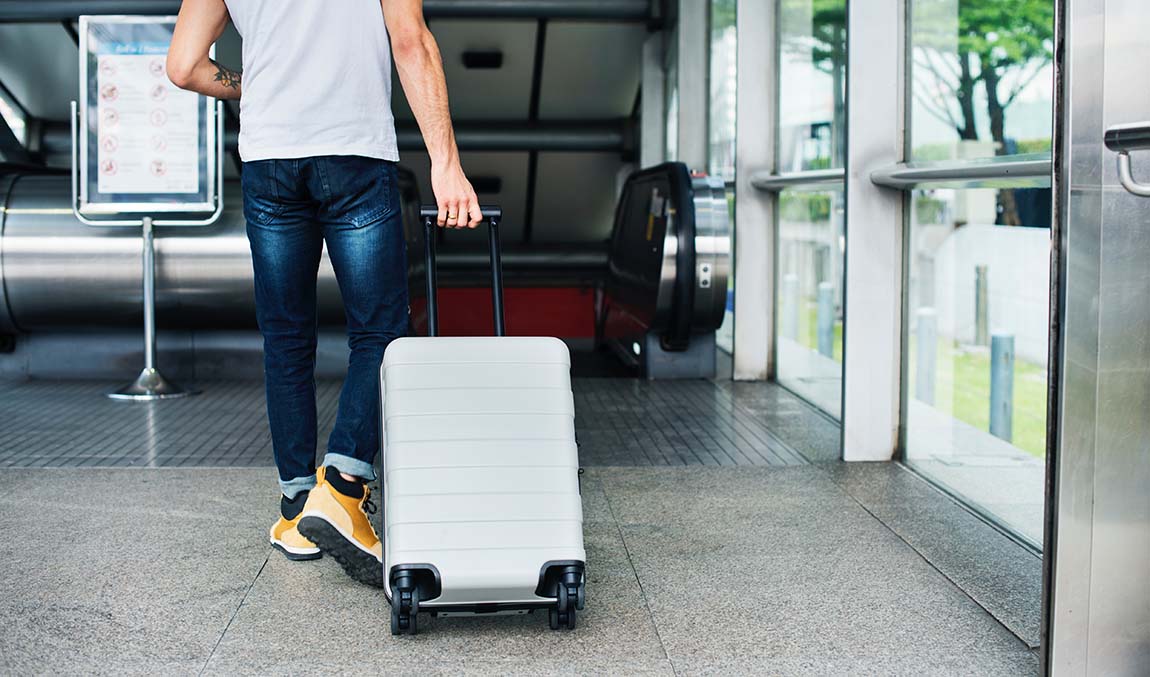
The only exceptions are baby food or special medical food. But such products must be carefully packaged and their weight must not exceed 2 kg.
What you can bring into Austria
Tourists over the age of 17 may bring with them:
- 1 litre of alcohol (or 2 litres of wine, liqueur);
- 200 cigarettes (or 100 cigarillos, 50 cigars, 250 g tobacco);
- 500 g of coffee, 200 g of coffee extract, 100 g of tea;
- 50 g of perfume, 250 g of toilet water;
- gold and jewellery up to a total weight of 500 g
- toiletries to a maximum value of 430 euros per adult and 150 euros per child.
How not to overload your suitcases
How to pack light and what not to bring to Austria? Here are some things you can leave at home:
- Beach towels. Some hotels provide them, but check.
- Potty for your baby. Hotels usually have a toilet seat cover.
- Baby food, nappies. These take up a lot of space, so it is a good idea to start with a small stock and then buy from local shops as you need them.
- Shampoos, soaps and other toiletries can be bought locally.
- Travel iron. It's a good idea to pack clothes that won't crease. An iron can be hired from reception.
- Pushchair. You should only take a small stroller if you are planning to go on long tours or walks.
- Ski equipment. Whether you take it with you or hire it depends on many factors, such as how many days you plan to ski and how you get to the resort. However, we recommend that you hire your equipment on arrival.
We hope this article has given you an idea of what you should and shouldn't take with you to Austria. Kidpassage wishes you an enjoyable and memorable holiday!



